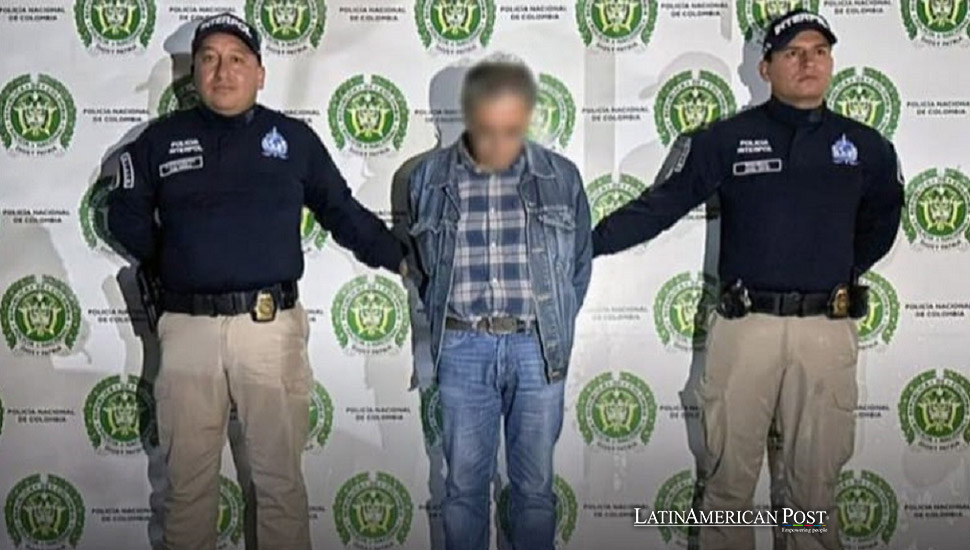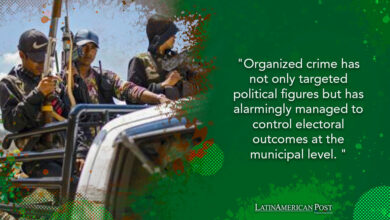South America Must Continue Orion-Like Operations to Fight Child Sexual Abuse

A recent operation led by Interpol resulted in 144 arrests across 12 South American countries for child sexual abuse, highlighting the need for increased international cooperation. To combat this heinous crime effectively, more collaboration between nations is essential.
Interpol Lead and South American Cooperation
Interpol-led Operation Orion, launched between May and September, has led to a groundbreaking series of arrests across South America, with 144 individuals detained for their involvement in child sexual abuse. Coordinated by Interpol, this international effort spanned 12 countries and protected 20 young victims. The operation underscores the severity of the crime and the importance of transnational cooperation in addressing it effectively.
The individuals arrested ranged from 14 to 86 years old and came from diverse backgrounds, including teachers, musicians, security guards, journalists, psychologists, and even taxi drivers. This wide variety of professions reveals an important truth: child sexual abuse is not confined to a specific demographic. It permeates all levels of society, making it all the more critical to identify and apprehend perpetrators regardless of their social standing.
Among the 144 arrests, 18 were direct aggressors, and seven were fugitives under international warrants for child sexual offenses. More alarmingly, 111 individuals were charged with possession and distribution of child abuse materials. In Argentina, authorities discovered shocking content and, with additional support from Interpol, were able to rescue a nine-year-old victim who had been subjected to abuse for six long years. Chilean authorities also identified a criminal distributing child exploitation materials in multiple messaging groups, which led to the rescue of a 14-year-old girl. These examples serve as powerful reminders of why we must increase international cooperation in the fight against child sexual abuse.
The success of Operation Orion demonstrates the effectiveness of international collaboration in combatting these crimes. Without the sharing of crucial information between countries and the leadership of Interpol, many of these perpetrators would likely still be at large, and their victims would remain in danger. However, while this operation is a significant step forward, it also highlights the urgent need for even greater international cooperation to prevent further abuses.
The Urgent Need for Increased International Collaboration
As Operation Orion proves, tackling child sexual abuse requires a global, united front. The transnational nature of these crimes means no single country can address them effectively. Unfortunately, child sexual abuse and exploitation are not limited by borders; they spread through international networks and online platforms, making it crucial for countries to work together more closely than ever before.
Interpol’s role in facilitating collaboration between 12 South American countries was vital to the operation’s success. Through coordination and sharing of resources, authorities across the region were able to track down offenders and rescue victims. However, this should not be a one-time effort. Regular cooperation between nations must become the norm to prevent criminals from exploiting legal and geographical loopholes. By pooling resources, intelligence, and expertise, countries can develop more effective strategies to dismantle criminal networks engaged in child exploitation.
In this context, international organizations like the United Nations, Interpol, and the Organization of American States (OAS) must be empowered and funded to support joint investigations. Governments should prioritize international task forces that can work in unison, conducting cross-border raids, identifying trafficking rings, and rescuing victims. For nations like Argentina and Chile, which have shown that cooperation yields accurate results, there is an opportunity to set an example for other regions dealing with similar issues.
The responsibility to protect children from exploitation extends beyond national borders. This is a global fight, and the success of operations like Orion should motivate countries worldwide to collaborate more proactively. By fostering stronger international alliances, we can improve information-sharing systems and increase the speed at which these criminals are identified and apprehended.
Technology and the Global Nature of Child Sexual Abuse
One of the most disturbing aspects of modern child sexual abuse is its relationship with technology. The rapid expansion of the internet, social media, and instant messaging platforms has given criminals unprecedented access to potential victims, as well as a new medium for sharing explicit and harmful materials. In Operation Orion, investigators discovered vast amounts of child exploitation content circulating on messaging apps, which facilitated the rapid spread of these materials across borders.
Technology has allowed perpetrators to hide anonymously, making it harder for law enforcement to track them down. Messaging platforms, encrypted communication, and dark web forums are frequently used to share illegal content, creating a complex and decentralized system that is difficult to dismantle. Unfortunately, child sexual abuse is no longer a crime committed solely in the physical world—it has become a global digital threat that requires a digital response.
To address this, countries must adopt advanced technological solutions to detect, monitor, and shut down platforms used for child exploitation. Governments should collaborate with tech companies to implement stricter security measures, develop AI-based tools for monitoring content, and enforce compliance with anti-exploitation laws. Social media giants and messaging services must take responsibility for their platforms and cooperate fully with law enforcement to report any illegal activities they detect.
However, the challenges of regulating the internet and online platforms go beyond individual countries. Many of these services are global, requiring international agreements and coordination to enforce laws across different jurisdictions. Stronger international regulations on internet governance, child protection, and online privacy need to be put in place to ensure that every country is contributing to the fight against child sexual abuse.
Strengthening Laws and Cross-Border Networks
While Operation Orion was a success, the broader legal framework surrounding child sexual abuse and exploitation needs to be strengthened in South America and globally. Although many countries have strict laws against these crimes, enforcement is inconsistent, and legal loopholes often allow offenders to evade justice. Strengthening legal systems and closing these gaps is essential for creating a long-term solution to child sexual abuse.
One way to achieve this is by harmonizing laws across borders, ensuring that offenders cannot escape punishment by fleeing to another country. Countries involved in operations like Orion must work together to align their legal frameworks, making it easier to prosecute offenders no matter where they are apprehended. Additionally, judicial systems must become more familiar with international crimes, ensuring that judges and lawyers understand the global nature of these offenses and the need for swift, coordinated action.
Governments should also invest in training law enforcement officials to handle cases of child sexual abuse more effectively. International partnerships should include training programs where police officers and investigators can learn the latest techniques for detecting, investigating, and prosecuting these crimes. This approach would ensure local authorities have the knowledge and resources to tackle these complex cases in their countries.
Additionally, more support is needed for the victims of these crimes. Providing mental health care, legal assistance, and safe housing for children rescued from abuse is crucial for their recovery. International organizations must continue to work with local governments to provide these essential services. By creating a support system that follows victims beyond their rescue, we can help them rebuild their lives and ensure that they are not left vulnerable to further exploitation.
Also read: Amnesty International’s Empty Words on Latin American Fires
The arrests made during Operation Orion are a significant victory in the fight against child sexual abuse, but they are only the beginning. This heinous crime knows no borders, and neither should our response. To effectively combat child exploitation, South American countries—and the world—must increase international cooperation, strengthen legal frameworks, and adopt new technological tools. Together, we can create a safer world for children, ensuring that predators are brought to justice and that young lives are no longer subjected to such unimaginable harm.





